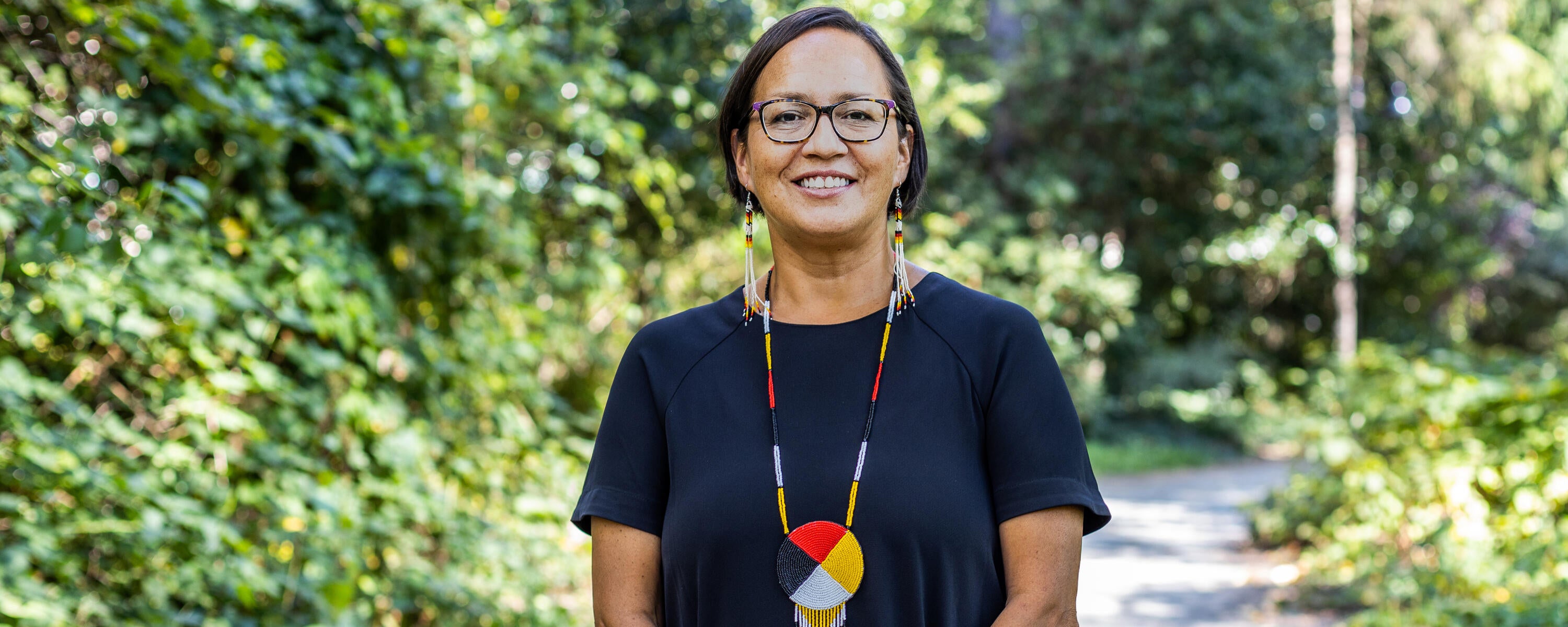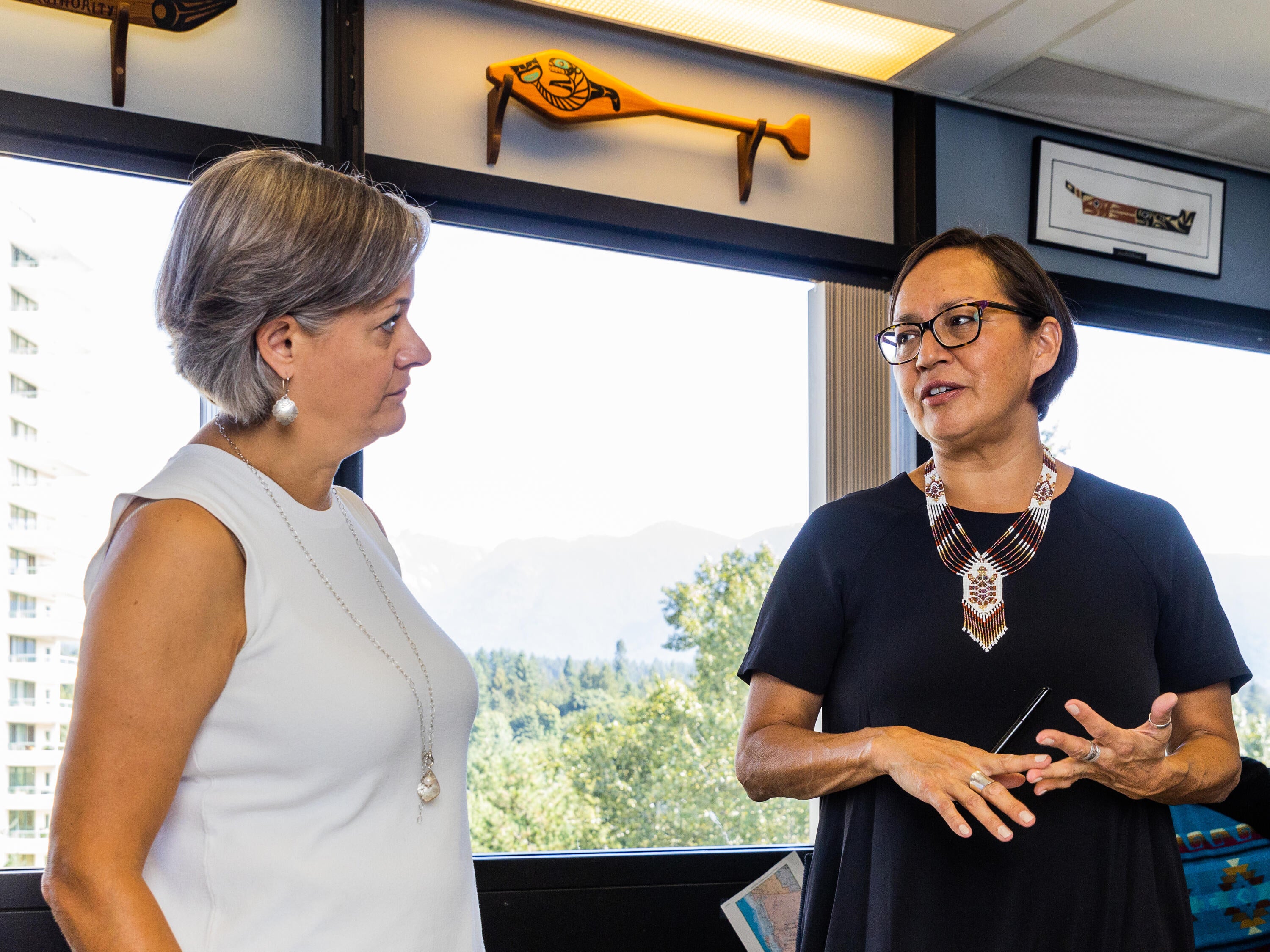
Much of the health-care system in Canada is built on a medical model that addresses health deficits and treats symptoms of disease. Traditionally, Indigenous peoples have taken a more holistic view of health that includes spiritual health and cultural wellness, which can lead to a challenge when Western systems try to treat them.
For Faculty of Health alumnus Cornelia (Nel) Wieman (MSc Kinesiology ’91), there is no question that these approaches result in Indigenous peoples being poorly served, and discriminated against, within the health-care system – whether in the delay or withholding of treatment from First Nations and Indigenous patients, or the reluctance of Indigenous peoples to access a system with racist and discriminatory practices.
A desire to transform the health-care system to be more culturally safe for Indigenous peoples has been a focus of Wieman’s career as Canada’s first female Indigenous psychiatrist.
"If you can’t see yourself in a role, you will never achieve it."
But first, Wieman needed to get to a place where she could see herself as part of the solution for bringing these two medical models together. She credits experiences at Waterloo for expanding her imagination: “If you can’t see yourself in a role, you will never achieve it.” Before she came to UWaterloo, she says, “As an Indigenous person and a Sixties Scoop survivor, and as part of systemic discrimination, I wasn’t particularly encouraged to achieve.” But at university, she began to realize that she was smart and capable, and a co-op term showed her that going to medical school was an option for her.
Not just about burning tobacco
While she originally thought that she would pursue neurosurgery or neurology, exposure to the Indigenous medical community further opened her eyes to where she could be most useful. “Very pragmatically, I came to see that an Indigenous neurosurgeon was not as needed as an Indigenous doctor who worked in mental health and wellness.”
Psychiatry, she realized, was one of the only specialties that brought together the science of Western medicine with the art of intuition, storytelling and relationships. After graduating, she worked first in a rural First Nations community, then with the Centre for Addiction and Mental Health (CAMH), Canada’s largest mental health teaching hospital, before moving to her current role as the senior medical officer for mental health and wellness for the First Nations Health Authority (FNHA) of British Columbia.

It is in this latest role that Wieman finds particular hope about integrating an Indigenous model of health into the Canadian health-care system. “We are attempting to transform the system,” she says. “The health of First Nations people will only improve if they have better access to, utilization of and benefit from the health-care system.”
It was with this in mind that the FNHA was formed in 2013 after a decade of discussions, the only First Nations led health authority of its scope and size in Canada. The FNHA is directly responsible to the 200-plus First Nations in B.C., but also partners with other health authorities, as well as provincial and federal partners, under a principle of reciprocity. Its goal is to transform the health-care system to include traditional healing and cultural practices, and to improve the health of First Nations and Indigenous peoples.
"We know there is a mind-body connection and that mental health underlies so many aspects of our health and wellness."
“What this looks like goes beyond just a corner of the hospital to burn tobacco,” Wieman says. “Instead we are trying to have the medical system recognize and make space for traditional healing practices, cultures and language on par with the Western medical system. Patients can choose to access one approach or the other or both, depending on what they feel would be most helpful, and do so in a meaningful way.”
Integrating Indigenous perspectives into health care also means recognizing the interconnections between physical health, mental health and addictions. “We know there is a mind-body connection and that mental health underlies so many aspects of our health and wellness,” Wieman says, noting that something as seemingly simple as lack of dental care can lead less advantaged people to experience mental health challenges.
And the integration of approaches is making a difference in the health of Indigenous people, even by Western standards. Wieman points to a recent study of a primary care clinic in Vancouver, where traditional elders were brought in as counsellors. The study demonstrated that patients who accessed the elders as part of their care were healthier according to indicators such as fewer emergency visits and lower rates of suicide attempts.
There is a long way to go for full integration of Indigenous perspectives into Western medicine, but Wieman is guided by the Indigenous principle of Seven Generations, which says that the decisions we make today should reflect what we want the world to look like in the generations to come. She says, “We won’t see the impact of our work necessarily, but we do it for our future, while still recognizing that people are struggling and need our help now.”
Originally published in our Fall 2019 News To You alumni magazine.